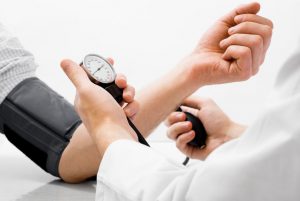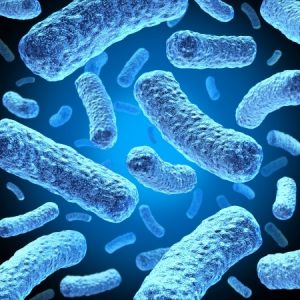
We’re hearing more and more about an issue that we rarely knew much about – Myocarditis. After you listen to cardiologists sharing the increasing statistics today, you need to dig deeper into this escalating issue.
Myocarditis is inflammation of the middle layer of the heart wall (myocardium), usually caused by a viral infection.
A virus.
The inflammation can reduce the heart’s ability to pump and can cause rapid or irregular heart rhythms (arrhythmias).
This can lead to heart failure, an abnormal heartbeat, and sudden death in some cases. A point to note, myocarditis is typically not common like it is today. Especially among athletes, children and young adults.
Like it is today.
Myocarditis is actually rare (or it used to be) primarily because it is caused by an infection in the body. Infections from viruses (the common cold, the flu, COVID-19, bacteria, fungus or parasites) can lead to myocardial inflammation, but again – this used to be RARE before COVID.
The mortality rate today from myocarditis is as high as 50 percent to 70 percent, particularly in children. Myocarditis typically occurred in older people who had a lifetime of accumulating all kinds of microbes.
On a positive note, many cases of acute viral myocarditis clear up on their own within a few days or weeks, leaving no negative health effects. Well, this is how it used to be – multiple COVID vaccines may be changing this outcome. Treatment typically involves bed rest and avoiding physical exercise for several months.
Some types of myocarditis may require treatment with antibiotics or steroids.
An elevation in troponin (a blood test that indicates heart muscle damage) or an electrocardiographic can show cardiac injury.
The vaccine issue is a new influence involved in myocarditis.
Symptoms
It’s common to have wet coughing spells or a long-term (chronic) cough if you have myocarditis, and a major side-effect is congestive heart failure. Most people with myocarditis experience sudden or gradual shortness of breath, both when resting and while performing any type of activity, like an athlete.
The signs and symptoms of myocarditis vary, depending on the cause of the disease. Common myocarditis signs and symptoms include:
- Chest pain
- Rapid or irregular heartbeat (arrhythmias)
- Shortness of breath, at rest or during activity
- Fluid buildup with swelling of the legs, ankles and feet
- Fatigue
- Headache
- Body aches
- Joint pain
- Fever
- Sore throat
- Diarrhea
Sometimes, myocarditis symptoms may be similar to a heart attack. If you are having unexplained chest pain and shortness of breath, consider seeking some medical advice.
Myocarditis In Children
When children develop myocarditis, they might have signs and symptoms including:
- Fever
- Fainting
- Breathing difficulties
- Rapid breathing
- Chest pain
- Rapid or irregular heart rhythms (arrhythmias)
Some Causes Of Myocarditis

- Viruses. Many viruses are commonly associated with myocarditis, including the viruses that cause the common cold (adenovirus); COVID-19; hepatitis B and C; parvovirus, which causes a mild rash, typically in children; and herpes simplex virus. Gastrointestinal infections (echoviruses), mononucleosis (Epstein-Barr virus) and German measles (rubella) also can cause myocarditis. It’s also common for the virus that causes AIDS.
- Bacteria. Bacteria that can cause myocarditis include staphylococcus, streptococcus, the bacterium that causes diphtheria and the tick-borne bacterium responsible for Lyme disease.
- Parasites. Among these are such parasites that are transmitted by insects and can cause a condition called Chagas disease. Chagas disease is much more common in Central and South America than in the United States, but it can occur in travelers and in immigrants from that part of the world.
- Fungi. Yeast infections, such as Candida; molds, and other fungi often found in bird droppings, can sometimes cause myocarditis, particularly in people with weakened immune systems.
Athletes
Why are more athletes getting myocarditis these days?
Well, remember that athletes maintain a higher metabolic level, which means their hearts are working at maximum preference – they are pushing the limits.
If a virus is introduced, it will race through an athlete’s system at an elevated rate. As a personal trainer at the time that I had aspartame poisoning, I experienced this reaction with aspartame – toxins are more harmful to those who maintain higher metabolic rates. Hence as an athlete, I witnessed stronger adverse reactions to aspartame than someone more sedentary.
It is now being confirmed that the COVID-19 vaccine can cause inflammation of the heart muscle (myocarditis) and inflammation of the outer heart lining (pericarditis) in ages 12 through 17, mostly in males.
The risk for myocarditis among people with COVID-19 is 16 times higher than among those without the infection, according to the U.S. Centers for Disease Control and Prevention. The research shows that myocarditis has been linked to up to 20% of the sudden deaths in young athletes.
As cases of myocarditis and pericarditis in athletes, adolescents and young adults increase after receiving the COVID-19 vaccine, don’t glaze over and accept only mainstream explanations. Do your homework. To respect what these people are experiencing, study these increasing events, read all the information from all the researchers.
No one believed that I almost died from aspartame poisoning – until they experienced it themselves, that is. The same situation is unfolding today as more people are diagnosed with myocarditis associated with COVID 19 and the experimental COVID vaccines.

________________
If you want to learn more about healthy living, contact me at janethull.com. Remember that you are never alone when you are looking for good health!
_____________
Disclaimer: This article is for informational purposes only, and is educational in nature. The FDA may not have evaluated some of the statements. This article is not intended to diagnose, treat, cure, or prevent any disease. Please discuss with your own, qualified health care provider before adding supplements or making any changes to your dietary program.
Before taking vitamins, consult your doctor; pre-existing medical conditions or medications you are taking can affect how your body responds to multivitamins.
You have our permission to reprint this article if you attribute us with a live back-link to this article https://janethull.com/